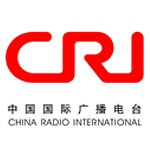Recruiters: Take it easy on HR professionals. These are THEIR issues!
 In my previous article, I pointed out to HR people how they could establish more productive working relationships with their clients and in particular the HR departments.
In my previous article, I pointed out to HR people how they could establish more productive working relationships with their clients and in particular the HR departments.
In this article, I turn that theme on its head and point out some of the things that most recruiters are not aware of when dealing with their clients, and perhaps should be.
1. HR Departments have a tough job to do. Theyare not regarded nor treated with the respect they mostly deserve by their internal clients; and particularly in China are regarded as a ‘supporting’ function rather than a business function. Companies who truly embrace HR as a profession have an HR seat on the board, because they realize, for example that people are often the biggest cost to businesses and the performance you get from your ‘people’ can have a huge impact on the top line and overall profitability of the business.
2. Recruiters – don’t shoot the messenger. Very often when an internal recruiter or even an HR Director tells you that they can’t pay you more than 20% for recruitment they are not doing this out of some bizarre desire to annoy you. They are doing it because at a corporate level this is a decision that has been made. Ignore recruitment training that gives you lots of ‘tricks’ to get a higher fee, instead establish sensible dialogue with your HR colleagues
3. They are the first to have their budgets cut. HR departments are often the first department to have their budgets cut when times are tough. When this season comes round ‘HR’ is again seen as a cost rather than a value add (in itself annoying if I were an HR professional) and the axe falls here first. This is hardly good for morale is it? Realize this as a recruiter. If you empathize with your HR colleagues you will build a better relationship faster.
4. Atone point my wife was seconded to an HR team for 6 months, and she told me that the sheer volume of paperwork that HR people have to manage is enormous. Recruiters complain about KPIs and form filling, but compared to HR teams this is nothing. If they can’t answer your email straight away there is a reason for that.
5. Be explicit in asking for the best way to communicate. Ask your HR clients how they can communicate with you and how is best to follow-up if you don’t get response. It is far better to be explicit about this and ask the question rather than to guess, email, call, text in vain. This is a direct, honest way of working that will gain YOU respect.
6. Make friends! One of my most successful team-members is successful because she is very good at making friends with HR clients. But what does this really mean? It means everything I’ve just talked about: Showing empathy; showing respect; understanding how best to communicate; understanding their professional priorities. If you do all of these things, then naturally, without any manipulation or trickery a good level of rapport and then friendship will flow.
The Author is the founder of RMG Selection. His linkedin profile can be viewed here.




 China is to add more than 30 minority language courses by 2020, such as local languages used in Azerbaijan, Georgia and Belarus.
For more on this issue, our host Wu You talks with Ruben van den Boer, Consultant from RMG Selection, an international recruitment company.
China is to add more than 30 minority language courses by 2020, such as local languages used in Azerbaijan, Georgia and Belarus.
For more on this issue, our host Wu You talks with Ruben van den Boer, Consultant from RMG Selection, an international recruitment company.

 By ROBERT PARKINSON
By ROBERT PARKINSON